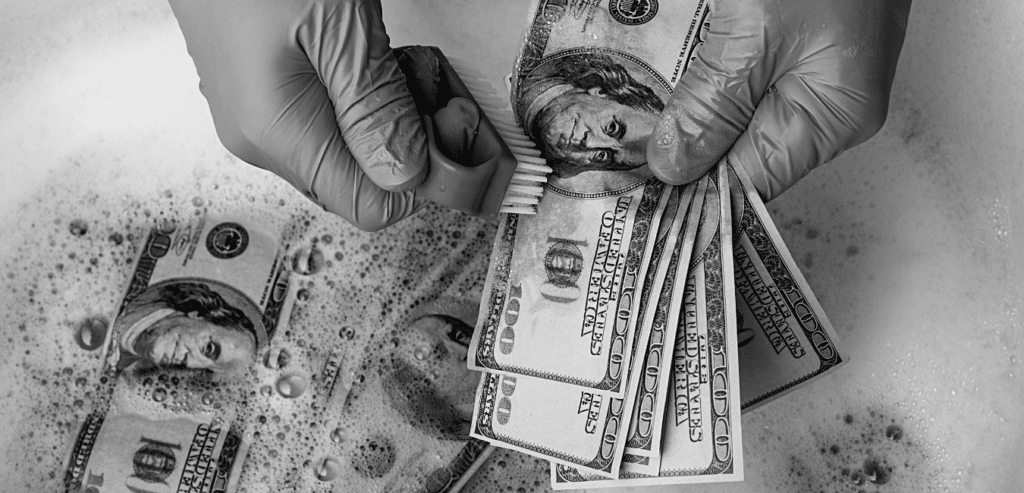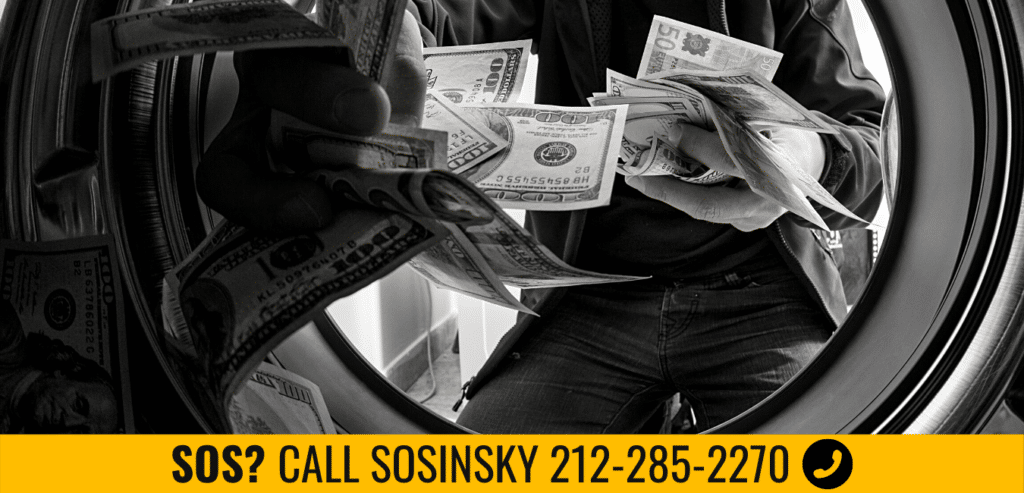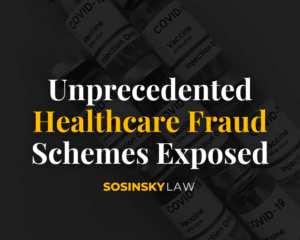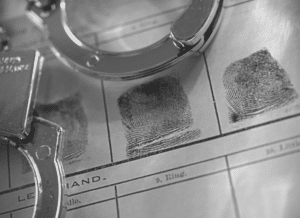Federal Money Laundering Lawyer
Money Laundering Lawyer in New York
The federal crime of money laundering prohibits financial transactions which are intended to conceal the source of funds produced through illegal activities or to promote the conducting of those illegal activities. Those who commit money laundering generally intend to cause such criminal proceeds to appear to be legitimate business revenue. Years ago, money laundering charges might be expected to be leveled almost exclusively against organized crime or drug trafficking organizations. Today, money laundering is charged in a great many cases where the proceeds at issue were purportedly derived from white collar crimes such as wire and mail fraud, securities fraud, or tax evasion. Luckily, an expert NYC money laundering lawyer will have defended against these crimes numerous times providing the kind of experience and confidence in the courtroom anyone charged with money laundering in New York desperately needs.
Depending upon which of two federal money laundering statutes one is charged with, money laundering convictions can carry prison sentences of up to either ten or twenty years in addition to very significant fines and criminal forfeiture. Compounding the situation, money laundering charges are almost always accompanied by additional federal charges such as mail or wire fraud, narcotics offenses, or tax evasion which the government alleges produced the illicit funds.
If you are under federal investigation or have been arrested and charged for money laundering, your first order of business is to retain experienced criminal counsel to protect your interests — and your freedom. For more than 30 years, NYC money laundering lawyer Fred Sosinsky has represented individuals and businesses who find themselves facing federal charges regarding banking and other financial transactions that the government suspects involve the proceeds of crimes. Fred has successfully guided these clients through some of the most stressful investigations and grueling prosecutions. With meticulous attention to detail and the assistance of expert forensic accountants, Fred has quite often achieved favorable results for clients caught up in money laundering cases in our federal courts. Call Fred now for a free consultation.

What Are Money Laundering Charges in New York?
The main money laundering statute, 18 U.S.C. 1956, requires that the government prove the accused was aware that the funds at issue were the proceeds of “specified unlawful activity” as that term is defined in the law. The definition, however, includes a wide swath of federal crimes including narcotics conspiracies, bank, wire, and mail fraud, extortion, and other offenses.
A person commits money laundering when he or she conducts or attempts to conduct a financial transaction with the intent to do one of the following: promote the carrying on of specified unlawful activities, engage in tax fraud or evasion, disguise or conceal the proceeds of specified unlawful activity, embezzlement, or avoid financial transaction reporting requirements.
In essence, the main money laundering statute makes it a crime to engage in any financial transaction in furtherance of a criminal act or as it is referred to specified unlawful activity or to hide the source of illegal funds or avoid reporting requirements.
The person charged with money laundering must have actual knowledge that the money comes from the criminal activity, although the government does not have to prove knowledge that it came from the proceeds of a specific crime.
In addition to the main money laundering statute, a second money laundering statute, 18 U.S.C. 1957 exists which makes it a felony to knowingly engage or attempt to engage in a financial transaction in or affecting domestic or foreign commerce which involves property derived from “specified unlawful activity” which is valued at greater than $10,000. The critical difference between this crime and the more commonly charged money laundering offense discussed above is that this type of money laundering does not require evidence that the accused intended to further the crime that produced the funds or to hide the source of the funds. So long as the defendant knew or had good reason to know that the funds were criminal proceeds of more than $10,000, the transaction may be charged as money laundering.
There Are Defenses to Federal Money Laundering Charges
Although any defense to charges of money laundering in New York will depend upon the evidence in the case, the following may be viable defenses your NYC money laundering lawyer can use in your favor:
First, because the government must prove that the accused had knowledge that the funds involved came from unlawfully derived proceeds, there may be a successful lack of knowledge or lack of intent defense. Moreover, because the government must also prove that the accused intended by engaging in the transaction to further in some way the underlying criminal activity, a lack of intent to do so, even where the transaction is conceded, may prove to be a successful defense.
Second, it is sometimes the case when several individuals participate in financial transactions that one or more of them is not kept “in the loop” as to the nature of the funds in question and does not know about the background and character of the provider of such funds. If one is unaware of the criminal nature of the money or property involved, they cannot be convicted of money laundering.
Money Laundering Connection To Other Crimes
It is important to note that money laundering, although it can be charged as a standalone offense, is often closely linked to other federal crimes. Individuals may find themselves under federal criminal investigation for money laundering in connection with various offenses such as mortgage fraud, securities fraud, credit card fraud, bank fraud, drug trafficking, cryptocurrency crimes, counterfeit goods, or other fraud crimes.
The evasion of reporting requirements is defined under 31 U.S.C. 5324, while the prohibition of unlicensed money-transmitting businesses is defined under 18 U.S.C. 1960. Violent crimes committed in support of racketeering activity are defined under 18 U.S.C. 1959. Additionally, money laundering charges often involve other types of federal crimes associated with organized criminal activity.
Money laundering is a complex and time-consuming federal offense that involves making illegally obtained money appear legitimate. This is accomplished through various intricate financial transactions and transfers. Typically, the process involves placing money into a financial institution, followed by a series of complex transactions to conceal the paper trail, and ultimately reintroducing the “clean” money into society through legal financial transactions.
Considered a federal fraud crime, money laundering carries severe penalties, including imprisonment and substantial fines. If you have been arrested for this offense, it is crucial to seek the assistance of a skilled attorney to have any chance of avoiding conviction.

Sentencing For Money Laundering
A person convicted of money laundering charges in New York faces up to ten years in federal prison if convicted of money laundering under 18 U.S.C. 1957 and up to twenty years if convicted under 18 U.S.C. 1956. Of course, a conviction for any other crime in addition to money laundering poses the possibility of consecutive sentencing by a federal judge.
Like all federal felonies, the sentencing of a defendant convicted of money laundering involves first the computation and consideration of the recommended federal sentencing guidelines range for such an offense. Much like other financial or economic crimes, the principal factor that drives the guidelines for money laundering is the number of funds involved. Also, factors under the sentencing guidelines are such things as the nature of the underlying crime which produced the proceeds, whether sophisticated means were employed, whether the defendant was in the business of laundering funds, and the role in the offense played by the defendant. After determining the advisory guidelines, the court will also consider all of the mitigating and character evidence submitted by the defense. NYC money laundering attorney Fred Sosinsky is well known and highly respected for his persuasive sentencing advocacy, including cases involving money laundering charges.
Contact the Top NYC Money Laundering Lawyer Today
If you or a loved one are a target of a federal money laundering investigation or a charged defendant in a federal money laundering case, call NYC money laundering lawyer Fred Sosinsky now. Join the legions of clients who Fred has had the honor of successfully defending on serious, complex white collar offenses.
SOS? CONTACT SOSINSKY
NYC Criminal Defense

Unprecedented Healthcare Fraud Schemes Exposed
Unprecedented Healthcare Fraud Schemes Exposed: A Glimpse into the Recent DOJ Crackdown In a groundbreaking move, the Department of Justice has unveiled criminal charges against

Conspiracy Charges in NY
NYC Conspiracy Crime Lawyer Conspiracy charges in NY are valid when two or more parties make a clear agreement to engage in criminal activity. Under
